Player Interviews: Would Rohit Sharma and Virat Kohli Have Stayed in Tests If Ravi Shastri Was Still Coach?
India’s Test cricket team has gone through many ups and downs in the past ten years. After MS Dhoni stepped down, Virat Kohli took charge and built a strong team that won even in tough overseas conditions. But when Rohit Sharma became captain, things changed.
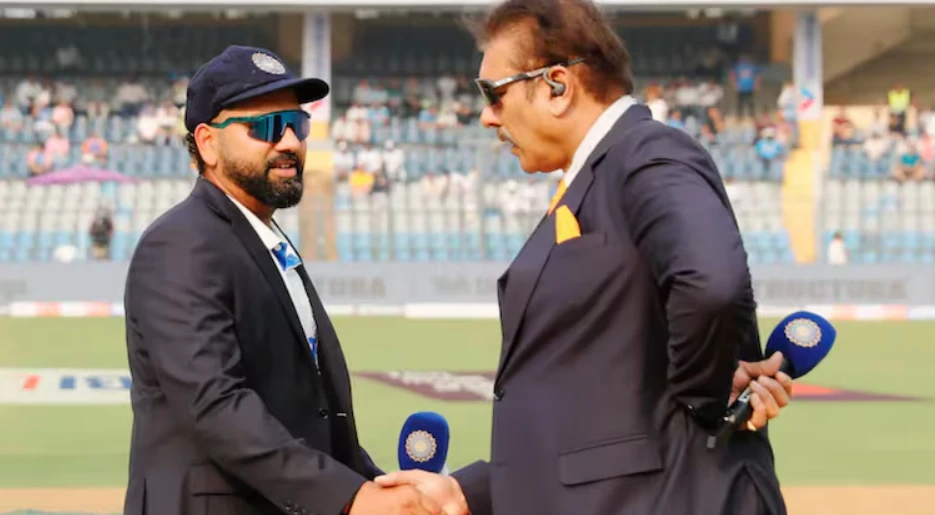
The team faced setbacks, including a loss to New Zealand at home and losing the Border-Gavaskar Trophy, which brought a lot of criticism. On 7th May 2025, Rohit Sharma announced his retirement from Test cricket and just a few days later, on 12th May 2025, Virat Kohli also retired from the longest format. After these two big retirements, former India head coach Ravi Shastri gave a strong and clear opinion on the matter. Let’s take a look at what he said.
Did Virat Kohli Retire from Test Cricket Due to Mental Exhaustion?
Virat Kohli’s Test career spanned from 2011 to 2025, and in this period, he went on to play 123 Test Matches and scored 30 centuries, making 9230 runs at an average of 46.85 and recently, former India coach Ravi Shastri shared his thoughts on why Kohli chose to retire from Test cricket, sparking fresh discussions about the decision.
Shastri revealed that Kohli was clear about his choice, stating he had given his all to Test cricket and had no regrets. Despite believing Kohli could have played for another two or three years, Shastri respected his decision after their conversation. Kohli felt his body had reached its limit, even though his mind was sharp. Shastri noted that Kohli’s focus might now shift to excelling in ODI cricket and franchise leagues, where he can still make a big impact. He said:
His mind was very clear. He said he had given everything and has no regrets or doubts. I understood the time was right. The mind told him that the body had given everything. In his mind he’s very clear there are no regrets. Everyone would want to continue for a longer time but he knows he can contribute massively in the ODI game and franchise cricket. The reason why I believe he has no regrets is because he gave it his everything.
Reflecting on Kohli’s achievements, Shastri highlighted his incredible record. Kohli led India with distinction, won World Cups, including an Under-19 title, and scored runs consistently across the globe. His competitive spirit and intense celebrations often got under the skin of opponents and fans, creating a unique love-hate dynamic, especially in countries like Australia and South Africa. This intensity, Shastri said, was like a “rash” that spread quickly, captivating audiences worldwide.
However, Shastri pointed out that carrying such responsibility for so long took a toll. The constant pressure and involvement across formats raised concerns about burnout. Shastri had previously worried that Kohli needed breaks to sustain his performance, but the cricketer pushed through until he decided Test cricket was enough. While fans might feel his retirement is premature, Shastri emphasized that Kohli, as the “boss” of his career, made the call when he felt the time was right. He further added:
Virat has done everything, he’s captained sides, he’s won World Cups, he’s won an U-19 World Cup. There is nothing for him to achieve. He’s got runs around the globe. Whether it’s Australia or South Africa, there was a love-hate relationship. They would get angry because he had the ability to get under the skin of even the viewers. The way he celebrated, his intensity was such that it was like a rash that spread very quickly.
Kohli’s legacy in Test cricket remains unmatched, with his leadership, run-scoring ability, and passion leaving a lasting mark. As he steps away from the format, his decision reflects a clear mind and a focus on new challenges ahead, ensuring he leaves the game with no unfinished business.
Would Ravi Shastri Have Let Rohit Sharma Play More Test Matches?
Being the captain of the Indian Test Team, Rohit Sharma did great with the bat but in the last few months, his performance against New Zealand and Australia in the Test Format was below par. In his last six red-ball matches, he managed only 122 runs across 11 innings, showing a significant dip in form. This struggle led to a surprising decision during the 2024-25 Border-Gavaskar Trophy (BGT) series against Australia, where Rohit chose to sit out the fifth and final Test in Sydney, with India trailing 2-1.
Former India head coach Ravi Shastri strongly disagreed with Rohit’s decision to step back. In an ICC interview, Shastri said he would have ensured Rohit played the Sydney Test, as the series was still winnable. He believed that even in poor form, Rohit, a proven match-winner, could have played a crucial 30-40 run cameo on the tricky Sydney pitch, potentially helping India draw the series. Shastri emphasized that a captain shouldn’t give up with the scoreline at 2-1, highlighting Rohit’s importance to the team. He said:
I told him, if I was coach you would have never not played that last Test match. You would have played that last Test match because the series wasn’t over. And I’m not someone who threw in the towel with the scoreline 2-1. If your mindset is you feel you are [not in form], that’s not the stage, you leave a team. That was a 30-40 run game and that’s exactly what I told him. The pitch was so spicy in Sydney. That series would have been level. Whatever kind of form he was in, he’s a match-winner.
The Sydney Test omission marked a tough end to India’s BGT campaign, resulting in their first series loss in the competition since 2018. This defeat also cost India a spot in the World Test Championship (WTC) final, after reaching it in 2021 and 2023. Soon after, Rohit announced his retirement from Test cricket, closing a remarkable chapter. Over 67 Tests, he scored 4,301 runs, including 12 centuries, and hit 88 sixes, the second-most for India in Tests, behind Virender Sehwag’s 91 and despite his recent struggles, Shastri praised Rohit’s ability to turn games, noting his leadership and batting prowess over the years.
Who Should be the Next Test Captain of the Indian Team?
With the retirement of the stalwarts of the Indian Test Team, Virat Kohli and Rohit Sharma, the search for the next captain of the Indian team has intensified, and fans are eagerly exploring new options now. The Indian cricket team is at a turning point, with the Board of Control for Cricket in India (BCCI) tasked with finding a leader to guide the squad into the future, especially with an upcoming five-match Test series against England starting June 20, 2025.
Former head coach Ravi Shastri has shared his thoughts on potential candidates, highlighting Shubman Gill and Rishabh Pant as top choices due to their youth and leadership experience. Both players, in their mid-20s, have captained their respective Indian Premier League (IPL) teams, Gill with Gujarat Titans and Pant with Lucknow Super Giants, giving them valuable experience. Shastri believes their age is a significant advantage, as they could lead the team for a decade and Shastri is confident that Gill’s talent will soon translate into consistent performances on foreign soil. He said:
You groom somebody and I would say Shubman’s looked very good. Give him the opportunity. He’s 25, 26 years of age, even give him time. There’s Rishabh as well. I think these two are the obvious ones I’m looking at because of their age and they have a decade ahead of them. So, let them learn. They’ve got experience as captains, now, captaining their (IPL) franchise and that makes a difference. See for me, Jasprit would have been the obvious choice after Australia. But I don’t want Jasprit to be made captain and then you lose him as a bowler.
While Shastri acknowledged Jasprit Bumrah as a strong candidate for the captaincy, he expressed concerns about the pacer’s fitness. Bumrah, a key bowler, has faced injury challenges in the past, and Shastri believes the added pressure of captaincy could risk his health, especially with the demanding transition from IPL’s shorter format to bowling long spells in Test matches and protecting Bumrah’s role as a bowler is a priority, making Gill and Pant more practical choices.
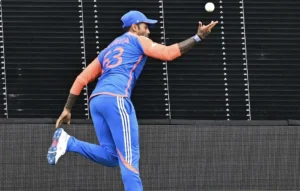
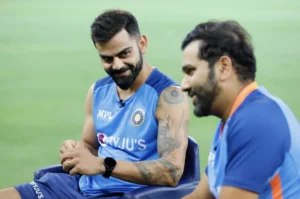
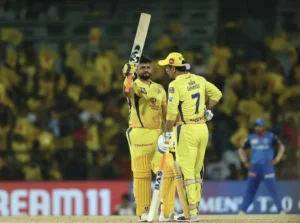
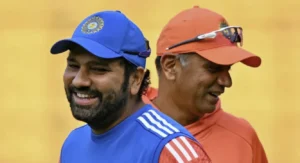
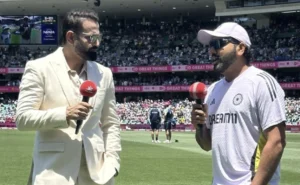
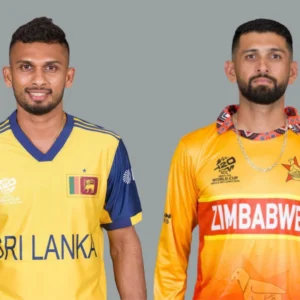
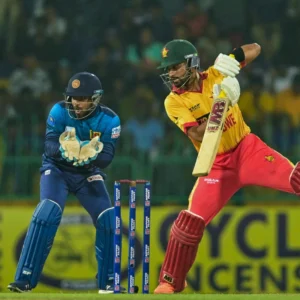
Comments